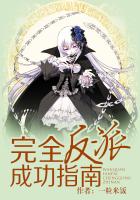The chapel was packed; they were all there who could be there. The Kings, the O'Rourkes, the Davieses, the Pughs, the MacQueens, the Gordons, the Car- michaels, the Hopetons. And the Clearys, the Drogheda people. Hope blighted, light gone. At the front in a great lead-lined casket, Father Dane O'neill, coveredin roses. Why were the roses always out when he came back to Drogheda? It was October, high spring. Of course they were out. The time was right. "Sanctus . . . Sanctus . . . Sanctus . . ."
Be warned that the Holy of Holies is upon you. My Dane, my beautiful son. It is better so. I wouldn't have wanted you to come to this, what I already am. Why I say this for you, I don't know. You don't need it, you never needed it. What I grope for, you knew by instinct. It isn't you who is unhappy, it's those of us here, left behind. Pity us, and when our times come, help us. "Missa est . . . Requiescat in pace ...."
Out across the lawn, down past the ghost gums, the roses, the pepper trees, to the cemetery. Sleep on, Dane, because only the good die young. Why do we mourn? You're lucky, to have escaped this weary life so soon. Perhaps that's what Hell is, a long term in earth-bound bondage. Perhaps we suffer our hells in living ....
The day passed, the mourners departed, the Drogheda people crept about the house and avoided each other; Cardinal Ralph looked early at Meggie, and could not bear to look again. Justine left with Jean and Boy King to catch the afternoon plane for Sydney, the night plane for London. He never remembered hearing her husky bewitching voice, or seeing those odd pale eyes. From the time when she had met him and Meggie in Athens to the time when she went with Jean and Boy King she had been like a ghost, her camouflage pulled closely around her. Why hadn't she called Rainer Hartheim, asked him to be with her? Surely she knew how much he loved her, how much he would want to be with her now? But the thought never stayed long enough in Cardinal Ralph's tired mind to call Rainer himself, though he had wondered about it off and on since before leaving Rome. They were strange, the Drogheda people. They didn't like company in grief; they preferred to be alone with their pain.
Only Fee and Meggie sat with Cardinal Ralph in the drawing room after a dinner left uneaten. No one said a word; the ormolu clock on the marble mantel ticked thunderously, and Mary Carson's painted eyes stared a mute challenge across the room to Fee's grandmother. Fee and Meggie sat together on a cream sofa, shoulders lightly touching; Cardinal Ralph never remembered their being so close in the old days. But they said nothing, did not look at each other or at him.
He tried to see what it was he had done wrong. Too much wrong, that was the trouble. Pride, ambition, a certain unscrupulousness. And love for Meggie flowering among them. But the crowning glory of that love he had never known. What difference would it have made to know his son was his son? Was it possible to love the boy more than he had? Would he have pursued a different path if he had known about his son? Yes! cried his heart. No, sneered his brain.
He turned on himself bitterly. Fool! You ought to have known Meggie was incapable of going back to Luke. You ought to have known at once whose child Dane was. She was so proud of him! All she could get from you, that was what she said to you in Rome. Well, Meggie. . . . In him you got the best of it. Dear God, Ralph, how could you not have known he was yours? You ought to have realized it when he came to you a man grown, if not before. She was waiting for you to see it, dying for you to see it; if only you had, she would have gone on her knees to you. But you were blind. You didn't want to see. Ralph Raoul, Cardinal de Bricassart, that was what you wanted; more than her, more than your son. More than your son!
The room had become filled with tiny cries, rustles, whispers; the clock was ticking in time with his heart. And then it wasn't in time anymore. He had got out of step with it. Meggie and Fee were swimming to their feet, drifting with frightened faces in a watery insubstantial mist, saying things to him he couldn't seem to hear. "Aaaaaaah!" he cried, understanding.
He was hardly conscious of the pain, intent only on Meggie's arms around him, the way his head sank against her. But he managed to turn until he could see her eyes, and looked at her. He tried to say, Forgive me, and saw she had forgiven him long ago. She knew she had got the best of it. Then he wanted to say something so perfect she would be eternally consoled, and realized that wasn't necessary, either. Whatever she was, she could bear anything. Anything! So he closed his eyes and let himself feel, that last time, forgetfulness in Meggie.















